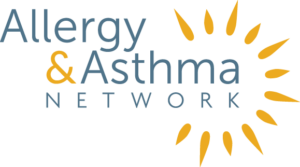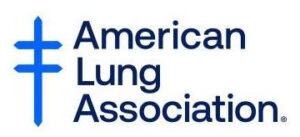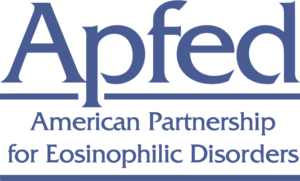Little Airways, Big Voices aims to bring the voice of patients and families impacted by asthma in childhood to the forefront of drug development and research.
About the Initiative
The Allergy & Asthma Network (AAN), American Lung Association (ALA), American Partnership for Eosinophilic Disorders (APFED), and Asthma and Allergy Foundation of America (AAFA) are collaborating on this initiative. Together they hosted a virtual externally-led patient-focused drug development (EL-PFDD) meeting, collected written comments, and conducted an online survey.
This work helped identify what is important to people living with and managing asthma in childhood. The Voice of the Patient Report on Asthma in Childhood summarizes the findings.
About the Meeting
The virtual EL-PFDD meeting held on September 20, 2021, was divided into two sessions. The first session focused on the patient experience, including symptoms and disease burden. The second session focused on treatment options. Each session featured presentations from patients/caregivers followed by a live, moderated discussion.
Participants took polls, submitted comments and questions during the live stream, and/or called in to contribute to the discussion.
Event Resources
What is a patient focused drug development (PFDD) meeting?
The U.S. Food and Drug Administration (FDA) established the patient-focused drug development (PFDD) initiative in 2006 to collect patient insights on specific diseases and their impact on daily life, as well as treatment options. PFDD meetings are designed to connect patients and families directly with the FDA, as well as drug researchers and developers. The meetings and resulting reports help the FDA identify what is important to patients, and what people want treatment to look like (apart from a cure).
The goal of the Little Airways, Big Voices PFDD meeting was to gather patient insights about living with and managing asthma in childhood that will inform new treatment strategies, effectively engage families in drug development, and improve health outcomes.
About asthma in children
Asthma is a chronic lung disease. It causes episodes of coughing, wheezing, chest tightness, and shortness of breath. Increased mucus and inflammation in the airways can cause spasms of the bronchial tubes, making it difficult to breathe. Symptoms can be mild or severe, and sometimes life-threatening.
Asthma is the most common chronic respiratory condition in children. It affects approximately 5 million children (ages 0-17) in the United States.
Asthma in children can be especially serious because children have smaller airways than adults. It is a leading cause of emergency department visits and one of the top indications for hospitalization in children.
Asthma symptoms may vary from child to child. Common signs and symptoms of asthma in children include:
- Fast, shallow breathing
- Panting with normal activities, such as playing
- Wheezing (a whistling, squeaky sound when you breathe)
- Persistent coughing
- Difficulty sucking or eating
- Tiredness, not interested in normal or favorite activities
- Flaring nostrils
- Frequent colds that settle in the chest
Call your child’s doctor or 911 right away if your child has the symptoms below:
- Working harder to breathe (with nostrils flaring, skin pulling in around and between ribs or above the sternum, or exaggerated belly movement)
- Tissue color changes on mucus membranes (like lips and around the eyes) and fingertips or nail beds — the color appears grayish or whitish on darker skin tones and bluish on lighter skin tones
Asthma in children can be triggered by respiratory infections, allergens, exercise, cold weather, and tobacco smoke. It is important to learn to recognize and avoid asthma triggers.
Because children may not always understand or recognize asthma and its symptoms, parents face a variety of challenges as they try to help their children breathe. Although treatment options have increased significantly, there are still patients for whom these options are not effective or accessible.
The project team
The organizations involved in the Little Airways, Big Voices project each have a history of providing support for patients and caregivers with asthma. Together, the organizations bring significant expertise, experience, and influence.
The collective history of hosting events bringing patients, caregivers, and patient advocates together with other healthcare stakeholders shows a commitment to elevating the patient voice in research and drug development.
Allergy & Asthma Network
The Allergy & Asthma Network is the leading nonprofit patient education and advocacy organization for people with asthma, allergies, and related conditions. The patient-centered network unites individuals, families, healthcare professionals, industry, and government decision makers to improve health and quality of life for Americans with asthma and allergies. The organization specializes in making accurate medical information relevant and understandable to all while promoting evidence-based standards of care.
Learn more: allergyasthmanetwork.org
American Lung Association
The American Lung Association is the leading organization working to save lives by improving lung health and preventing lung disease, through research, education, and advocacy. Their work is focused on four strategic imperatives: to defeat lung cancer; champion clean air for all; improve the quality of life for those with lung disease and their families; and create a tobacco-free future.
Learn more: lung.org
American Partnership for Eosinophilic Disorders
The American Partnership for Eosinophilic Disorders (APFED) is a non-profit organization whose mission is to passionately embrace, support, and improve the lives of patients and families affected by eosinophil-associated diseases through education and awareness, research, support, and advocacy.
Learn more: apfed.org
Asthma and Allergy Foundation of America
Founded in 1953, the Asthma and Allergy Foundation of America (AAFA) is the oldest and largest non-profit patient organization dedicated to saving lives and reducing the burden of disease for people with asthma, allergies and related conditions through research, education, advocacy, and support. AAFA offers extensive support for individuals and families affected by asthma and allergic diseases, such as food allergies and atopic dermatitis (eczema). Through its online patient support communities, network of local chapters and affiliated support groups, AAFA empowers patients and their families by providing practical, evidence-based information and community programs and services.
Learn more: aafa.org
